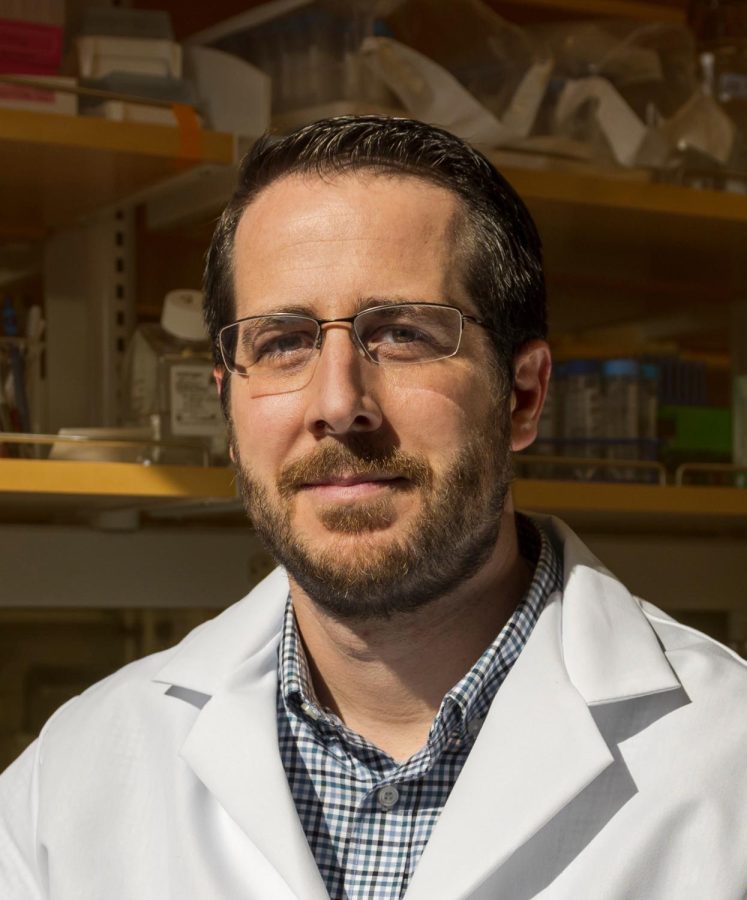In 2013, Jason McLellan, molecular biosciences professor and Robert Welch chair in chemistry, and Barney Graham considered applying a structure-based vaccine approach to fight coronaviruses. Years later, this idea helped develop the vaccine that saved millions during one of the world’s deadliest pandemics.
McLellan was selected for induction into the National Inventors Hall of Fame on Jan. 16 for his work on structure-based vaccine designs, which contributed to the COVID-19 vaccine development. McLellan will be inducted on May 8 as one of the youngest inductees in the hall’s history. McLellan began working on the structure of coronaviruses in 2013 as an independent investigator at Dartmouth College. McLellan said while people may not have known about coronaviruses before the pandemic, they were well-known within the scientific community.
“Prior to 2017, we had already shown a universal way of stabilizing coronavirus spike proteins,” McLellan said. “The spike protein on the surface of the coronavirus is similar to the SARS-CoV-2 (the virus that causes COVID-19) spike protein … so we just had to quickly translate everything we learned, which is one reason why the vaccines could be produced so quickly.”
McLellan said working quickly under high stakes and practicing social distancing during the pandemic remained the most difficult part of developing the structure-based vaccine design.
“We didn’t know it was going to be a global pandemic … but then (we) saw the news reports that there were outbreaks in Europe, Spain, Italy and the U.S. … and were like ‘Oh, wow, this really could be the global pandemic,” McLellan said. “It got more difficult when we had to have social distancing in the lab and split the lab into half … for several months.”
In addition to serving as a professor, McLellan runs the McLellan Lab, which focuses on bacterial pathogen, respiratory and emerging vaccine research. Nicole Johnson, McLellan Lab staff scientist and project manager, said McLellan supports lab members and encourages them to be thorough and genuine with their work.
“Even if you’re going into (an) industry like biotech or if you’re staying in academia, those skills are really important to develop before you get there,” Johnson said. “So what Jason provides is a lot of space to develop those skills with your own style.”
Elizabeth McFadden, McLellan Lab graduate research assistant, said McLellan serves as a fantastic mentor who curates a great lab environment that encourages members to think independently and learn from failures.
“I truly never had a better mentor. There’s a lot of failure in science, so it’s easy to be upset or (get) in your head, but he makes science really fun and engaging, and the lab environment is great,” McFadden said. “That’s all something that Jason has done by leading by example.”
McLellan said students who want to follow in his footsteps should realize their passions and remain diligent.
“Find something you love to do and do it for the rest of your life,” McLellan said. “Work hard, study a lot and prepare yourself for when these opportunities arrive that you’re able to contribute to.”














